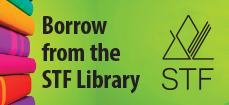Analyze the connections between personal identity and personal well-being, and establish strategies to develop and support a positive self-image.
| (a) |
Investigate knowledge and information about self-image. |
| (b) |
Discuss criteria that can be used to determine if a health source is reliable. |
| (c) |
Describe the qualities that are important in a person, regardless of their gender, culture, appearance, sexual orientation, abilities, and/or language. |
| (d) |
Define stereotyping (i.e., a set of characteristics or a fixed idea considered to represent a particular kind of person), prejudice (i.e., preconceived negative or hostile views toward a person or group of persons based on ignorance and stereotyping), and discrimination (i.e., unfair treatment of a person or group on the basis of prejudice). |
| (e) |
Ask questions and seek answers for deeper understanding:
|
| (f) |
Express insights of the effects of stereotyping and discrimination on self and others. |
| (g) |
Reflect on self-image as "the way you see yourself as a result of what you believe about your appearance, abilities, and character". |
| (h) |
Discuss the influence of self and others (e.g., family expectations, family values and beliefs, culture, religion) on one's self-image. |
| (i) |
Explore and describe what one can think, say, and do to develop and/or support a positive self-image in both self and others (e.g., recognize and refrain from derogatory comments related to any aspect of one's self-image, challenge stereotypes, bias, and discrimination that are based on appearance and/or self-image). |
| (j) |
Identify and practise strategies for expressing feelings associated with the physical and emotional changes of puberty (e.g., family meeting, writing in a journal). |
| (k) |
Identify misunderstandings and/or misconceptions related to messages in the media that may misinform the public about identities (e.g., portrayal of violence, ethnic, gender, and racial bias). |
| (l) |
Discuss how privilege, lack of privilege, and/or unexamined privilege (e.g., levels of education, wealth, access to resources) distort our views of others, limit our potential, and impact our own and others' identities. |



A teacher's guide is available.

A teacher's guide is available.



What's Respect? Respecting Rules - Why are there rules? What does it mean to respect rules? The program helps students to understand the importance of following rules and their impact on society.
What's Respect? Self Respect - In this program, students learn what it means to have self-respect. They will come to understand the importance of knowing what their values are and how they differ from others.
What's Respect? Respecting Everyone's Ideas - This program explores the concept of respecting the differences in people. In this segment, students learn the importance of respecting different ideas.
What's Respect? We're All Different - Students will learn each person is different and it is important to respect these differences.

- Health & Wellness Grade 5. Teacher's Edition






